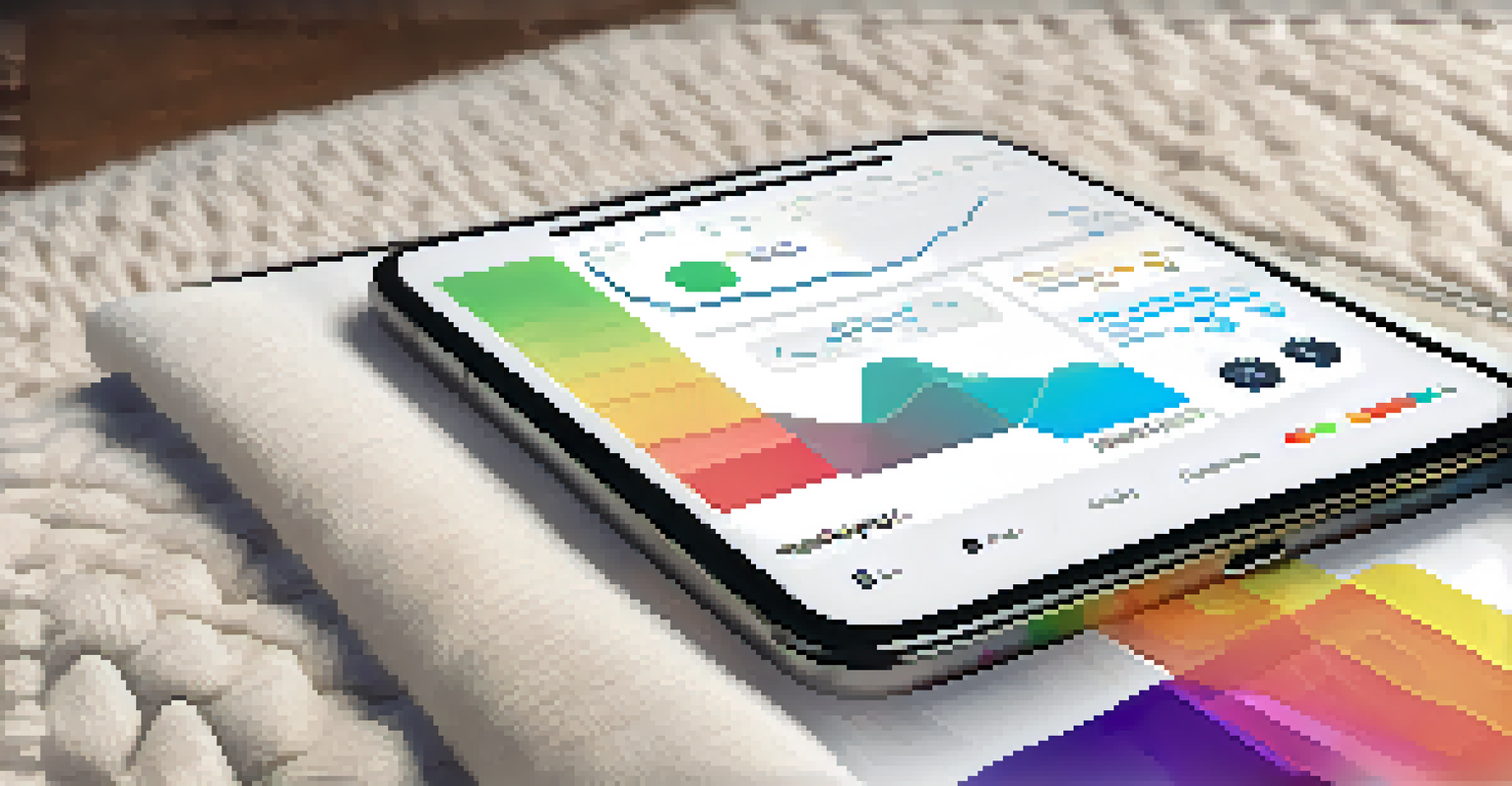Sleep Tracking: Tools for Managing Mental Health and Sleep

Understanding Sleep Tracking and Its Importance
Sleep tracking is the process of monitoring your sleep patterns to gain insights into your sleep quality. By keeping tabs on how long and how well you sleep, you can identify issues that might be affecting your mental health. Quality sleep is essential for emotional regulation, cognitive function, and overall well-being.
Sleep is the best meditation.
When you sleep poorly, it can lead to increased stress, anxiety, and even depression. Conversely, good sleep can help you feel more energized and improve your mood. Understanding the connection between sleep and mental health is the first step toward making positive changes.
Incorporating sleep tracking into your routine provides you with valuable data that can help you adjust your habits. Whether it’s through apps, wearable devices, or sleep diaries, having this information empowers you to make informed decisions about your sleep hygiene.
Popular Sleep Tracking Tools and Apps
There are numerous sleep tracking tools available today, each offering unique features to help you manage your sleep. Apps like Sleep Cycle and Calm provide insights into your sleep stages and even wake you up during your lightest sleep phase for a gentler start to the day. Wearable devices, such as smartwatches, can also monitor your heart rate and sleep cycles.

These tools often come with additional features like guided meditation or relaxation techniques that can enhance your sleep experience. For instance, some apps offer white noise or soothing sounds to help you drift off more easily. The variety of options means you can choose a tool that fits your lifestyle and preferences.
Sleep Tracking Boosts Mental Health
Monitoring your sleep patterns can help identify issues that affect your mental well-being, allowing you to make informed changes.
By utilizing these sleep tracking tools, you can gather data that helps you understand your sleep patterns better. Over time, this can lead to improved sleep quality and, as a result, better mental health.
Setting Realistic Sleep Goals with Tracking
When you start tracking your sleep, it’s crucial to set realistic goals for improvement. Instead of aiming for a perfect eight hours every night, focus on gradually increasing your sleep duration or quality. For example, if you typically sleep five hours, try to increase it to six hours over a few weeks.
The nature of sleep is such that it is the closest we come to death while still being alive.
Sleep trackers can provide insights about your sleep habits that help you identify patterns and areas for improvement. Maybe you notice you often wake up during the night or have trouble falling asleep at a certain time. These insights can guide you in setting achievable goals that align with your lifestyle.
As you achieve these smaller goals, don’t forget to celebrate your progress! This can motivate you to continue making positive changes, ultimately leading to better sleep and improved mental health.
Identifying Sleep Disorders Through Tracking
Sleep tracking can be a valuable tool in identifying potential sleep disorders. If your tracker consistently shows irregular sleep patterns or insufficient sleep, it might be time to consult a healthcare professional. Conditions like sleep apnea or insomnia can have serious implications for both your sleep quality and mental health.
By providing your sleep data to a doctor, you can help them better understand your sleep issues. This information can lead to more accurate diagnoses and tailored treatment plans. Moreover, being proactive about your sleep health can prevent more severe mental health issues down the line.
Tools Enhance Sleep Quality Insights
Utilizing apps and wearable devices can provide valuable data on your sleep, helping you understand and improve your sleep habits.
Recognizing the signs of a sleep disorder early can make a significant difference in your overall well-being. With the help of sleep tracking, you can take charge of your health rather than letting sleep issues control you.
Creating a Sleep-Friendly Environment
A conducive sleep environment is vital for ensuring quality rest. By tracking your sleep, you can identify how factors like light, noise, and temperature affect your sleep quality. For instance, you might find that you sleep better in a cooler room or when you limit screen time before bed.
Making small adjustments, such as using blackout curtains or a white noise machine, can significantly enhance your sleep environment. Additionally, creating a calming pre-sleep routine can signal your body that it’s time to wind down. Think of it as preparing a cozy nest for a good night’s sleep.
By combining your sleep tracking data with environmental changes, you can create a sleep sanctuary that promotes better rest. This holistic approach will not only improve sleep quality but will also support your mental health.
The Role of Lifestyle Choices in Sleep Quality
Your daily lifestyle choices play a significant role in your sleep quality. Factors such as diet, exercise, and stress levels all contribute to how well you sleep at night. For instance, consuming caffeine or heavy meals close to bedtime can interfere with your ability to fall asleep.
Sleep tracking can help you identify these lifestyle patterns and their impact on your sleep. Perhaps you notice that nights spent binge-watching your favorite show lead to less restful sleep. Recognizing these triggers allows you to make informed adjustments for better sleep.
Lifestyle Choices Impact Sleep Patterns
Daily habits like diet and exercise significantly influence your sleep quality, and tracking can reveal these important connections.
Incorporating regular exercise and mindfulness practices into your routine can also enhance your sleep quality. These lifestyle changes, combined with sleep tracking, create a comprehensive strategy for improving both your sleep and mental health.
Using Sleep Data to Improve Mental Health
The insights gained from sleep tracking can be instrumental in enhancing your mental health. By understanding how your sleep patterns correlate with your mood, you can make targeted changes to improve both. For example, if you notice that poor sleep aligns with increased anxiety, you can prioritize better sleep habits.
Keeping a sleep diary alongside tracking can be particularly useful. Documenting your thoughts and feelings can help you see patterns that might not be immediately obvious. This self-awareness is a powerful tool in managing mental health effectively.

Ultimately, the goal is to use your sleep data as a guide to foster a healthier lifestyle. With the right tools and strategies, you can create a positive feedback loop where improved sleep leads to better mental health, and vice versa.